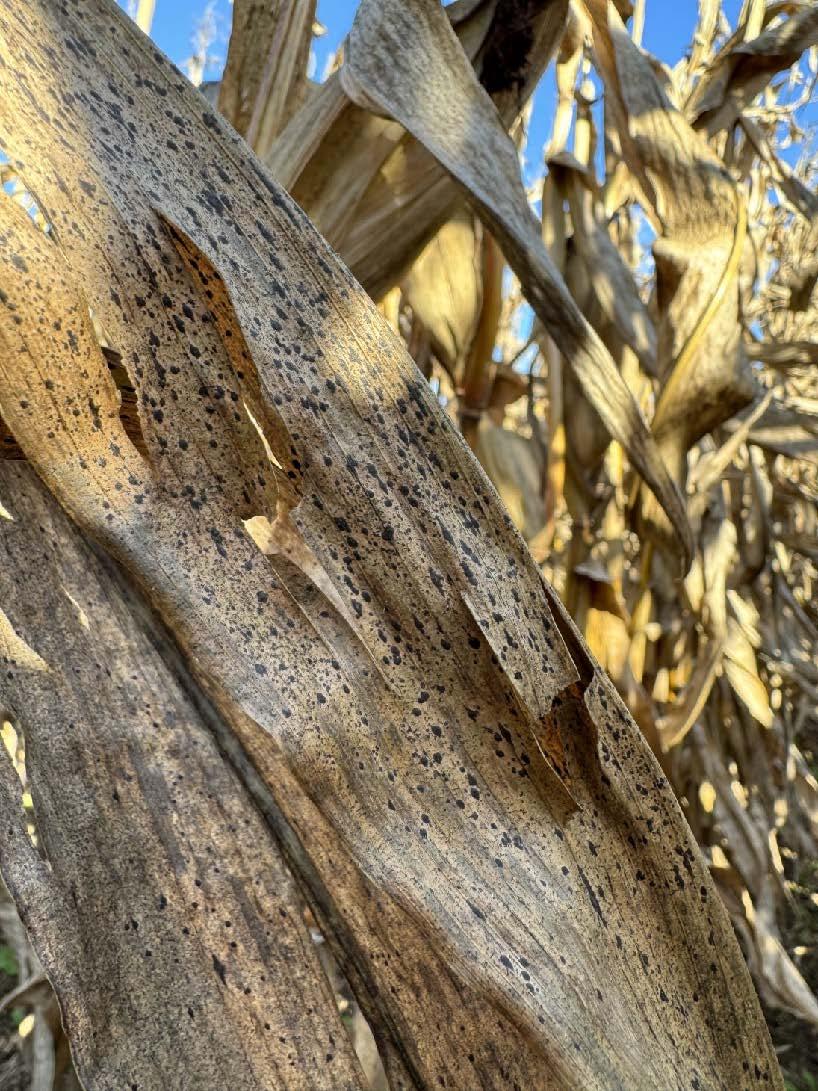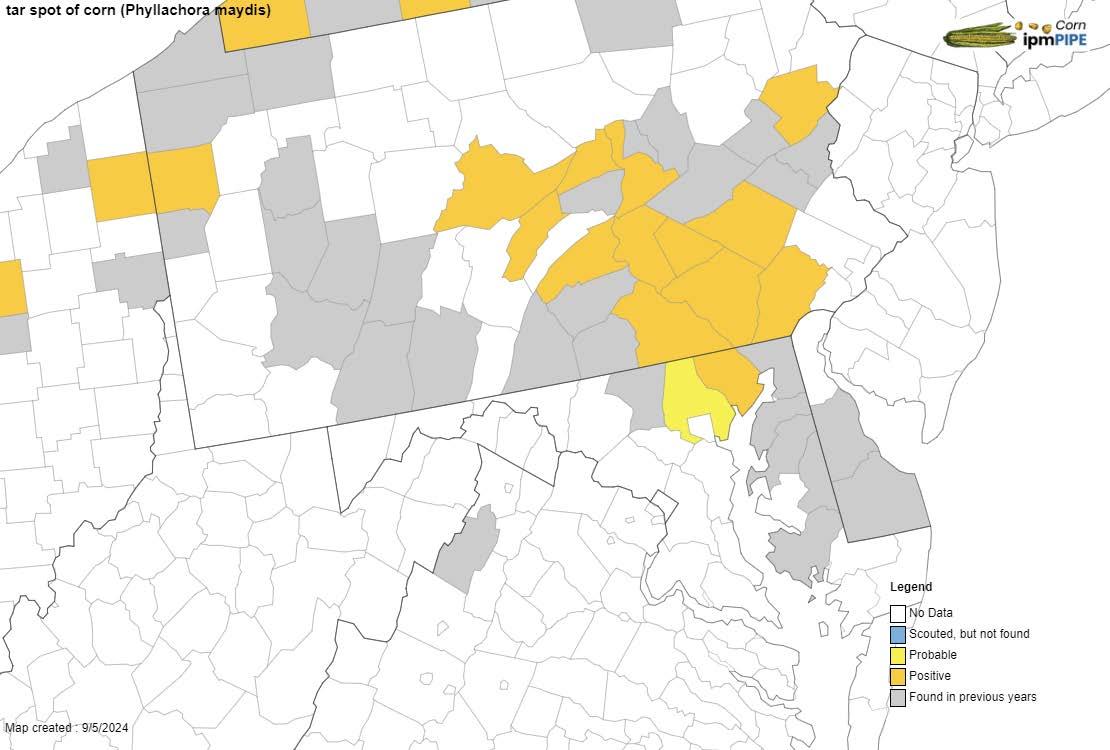Tar Spot Update: First Reports

Our first official reports of tar spot have been confirmed in Maryland for 2024; almost exactly on pace for when we first detected tar spot in 2023 and 2022. The first report came from a dent corn field in Baltimore County on August 22 and subsequent reports were made from fields in Harford County on August 27 and September 4. All of these fields are near black layer and yield loss due to tar spot infection is not likely unless infection occurred earlier in grain fill or during pollination. It is not likely that we had tar spot infections occurring in July due to the extreme heat this year. Tar spot infections require lower temperatures than other common fungal diseases of corn such as gray leaf spot.
As average daily temperatures begin to dip into the mid 70s and mid 60s, tar spot symptoms will likely start to flare up in Tar spot can spread as long as there is green tissue on the plant, which means symptoms can worsen even past black layer, making for a field that could look far worse than it actually is. For reference, last fall I did yield checks in two corn fields and one research plot that had fairly moderate levels of tar spot infection (Figure 1) but still yielded very well (220-300 bu/a), with the field with the worst symptoms topping 300 bushels. What likely happened is tar spot infected corn close to R5-R6 and it continued to spread after black layer since the plants stayed green beyond physiological maturity due to the stay green effect of foliar fungicides that were applied to these fields. Even though tar spot spores can blow short distances in the wind, if you are harvesting a field infected with tar spot, it would be a good practice to try to clean as much corn fodder off of equipment prior to moving to a new farm; a blower or air compressor will do the trick.
As you are scouting your corn fields, be on the lookout for tar spot. With funding from the Maryland Grain Producers Utilization Board, we are conducting a survey of the distribution of tar spot in Maryland. If you have tar spot, or think you might, please report it to corn.ipmpipe.org or reach out to me at akness@umd.edu or (410) 638-3255. Reports are kept anonymous and individuals and/or farms are not identified in any reports, publications, or communications.
This article appears in September 2024, Volume 15, Issue 6 of the Agronomy News.
